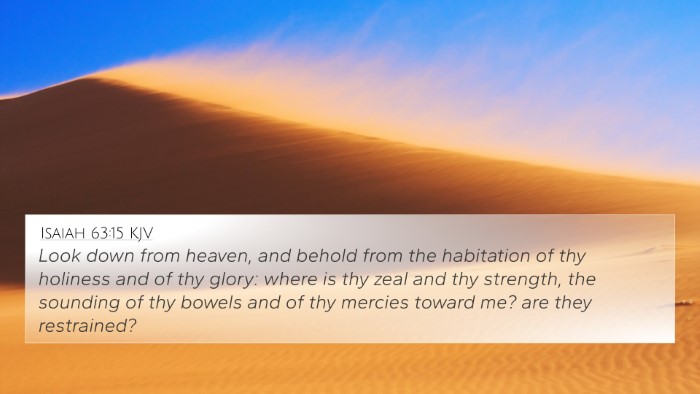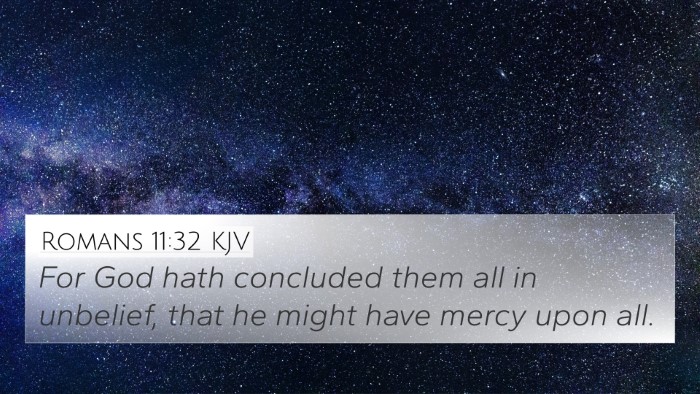Psalms 77:9 - Deep Insights and Interpretations
Psalms 77:9 states: "Hath God forgotten to be gracious? hath he in anger shut up his tender mercies?" This verse speaks to a profound moment of questioning and doubt in the life of a believer, reflecting a state of anguish and despair where one feels abandoned by God.
Contextual Summary
In this chapter, the psalmist is wrestling with his emotions and the seeming silence of God during troubling times. It echoes the sentiments of many believers who, amidst trials, wonder if God has turned away from them. The verse captures a poignant moment where the psalmist questions God's grace and mercy.
Insights from Biblical Commentaries
Matthew Henry
Matthew Henry highlights the rhetorical nature of the questions posed in this verse. He points out that the psalmist's inquiry reflects a deep distress in feeling as if God has ceased to show grace or compassion. Henry emphasizes that this cry for understanding is common among believers facing significant challenges, showcasing that even in doubt, one can turn to God for clarity.
Albert Barnes
Albert Barnes elaborates on the themes of grace and mercy, noting that the verse illustrates a temporary lapse in faith when circumstances appear dire. He explains that such moments are part of the human experience, where feelings of despair can overshadow the remembrance of God's past kindnesses. Barnes encourages readers to acknowledge these feelings while encouraging a return to faith as a remedy.
Adam Clarke
Adam Clarke provides a broader theological context, emphasizing that the psalmist’s anguish represents a spiritual struggle common to all humanity. Clarke notes that the intense feelings expressed are not indicative of God’s actual disposition but rather of the psalmist’s struggle to reconcile his experience with his understanding of God. This wrestling highlights a deep, personal faith that grapples with a God who seems distant.
Cross-References for Deeper Understanding
This verse presents a rich tapestry of themes linking to various Bible verses, deepening the comprehension of despair and questioning God's mercy. Here are some relevant cross-references:
- Psalms 13:1: "How long, O Lord? Will you forget me forever?" - Expresses a similar feeling of abandonment.
- Psalms 88:14: "O Lord, why do you cast my soul away?" - A profound cry of despair in a time of trouble.
- Lamentations 3:20-23: "My soul continually remembers it and is bowed down within me. But this I call to mind, and therefore I have hope." - A reminder of hope amidst suffering.
- Isaiah 49:14: "But Zion said, 'The Lord has forsaken me; my Lord has forgotten me.'" - A poignant depiction of feeling forsaken.
- Micah 7:18: "Who is a God like you, pardoning iniquity and passing over transgression?" - Contrasts the psalmist's feelings with God’s nature of mercy.
- Romans 8:31: "If God is for us, who can be against us?” - Assurance of God’s support despite our doubts.
- Job 30:20: "I cry out to you, God, but you do not answer; I stand up, but you merely look at me." - Job's own sense of silence from God.
- 2 Corinthians 12:9: "My grace is sufficient for you, for my power is made perfect in weakness." - A reminder of God’s grace during our weakest moments.
- Psalms 42:9: "I say to God my Rock, 'Why have you forgotten me?'" - Another example of questioning God’s presence.
- Psalms 30:5: "Weeping may tarry for the night, but joy comes with the morning." - The ultimate promise of God’s faithfulness.
Thematic Connections and Analysis
This verse can be linked to various thematic elements across the Scriptures. It connects deeply with:
- The Theme of Divine Abandonment: Many psalms reflect feelings similar to those of the psalmist in 77:9, providing a framework for understanding human emotions in relation to divine silence.
- The Assurance of God’s Mercy: This theme runs throughout both the Old and New Testaments, offering a foundational understanding that God’s mercy endures even when humanity feels forsaken.
- Human Struggle and Faith: Believers often wrestle with their faith, leading to deeper spiritual growth and a more profound understanding of God’s nature.
- God’s Responding Nature: The Scriptures often reaffirm that God hears and responds to the cries of His people, teaching that silence does not equate to absence.
Application and Reflection
In studying Psalms 77:9, believers can find solace and a communal bond in the shared human experience of suffering. The vital reflections from Matthew Henry, Albert Barnes, and Adam Clarke demonstrate that questioning God is a part of faith. Rather than causing despair, these questions can foster deeper connections with God through prayer and the understanding that His grace is always present, even in moments of uncertainty.
As one contemplates the quietness of God during turbulent times, it is essential to remember that every doubt can open the door to a more faith-filled understanding of God’s nature and promises. In the light of this verse, we are reminded that it is within our struggles that we often find the clearest articulations of our faith.











